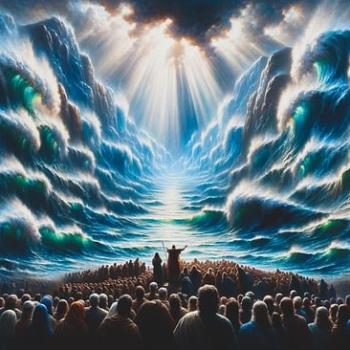
“The Lord bless you and keep you! The Lord let his face shine upon you, and be gracious to you! The Lord look upon you kindly and give you peace!” – Numbers 6:24-26
The inevitable and luminous mystery that always seemed so far away is now pressing upon me. As I am writing these words, my mother is dying. It is surreal even to write these words. The woman who brought me into this world is now leaving it. Indeed, she would leave this world on Good Friday.
As with most things in life, death and grief are done alone. We may have family members and friends attend to us at these times, but each of us must experience it alone.
Beyond the sense of loneliness and emptiness that the death of a loved one brings, it also brings forth, at least for me, this question: If everything dies, does life have any meaning?
We are here for such a brief time, and then everything that we are, everything that we knew, and everyone that we loved is gone.
There is an ancient Latin phrase, memento mori. Remember that you must die. But how can we forget? Each day, we see death. Perhaps it is not dramatic, like seeing one’s mother dying before one’s eyes. Sometimes, it is the ache of a body slowly breaking down or the frown lines etched deeper into the skin with every glance in the mirror.
Are we born only to die? To be fruitful and multiply before giving way to another generation? To burn like fires only to be extinguished, to surrender to the elements’ eternal reclaim.
I am left with this thought: If there is no God, there is no eternal life. If we have no hope of eternal life, then this life and everything that it consists of have no meaning. Human life, all life, is nothing but an accident of ancient biology; the universe we inhabit nothing but the fortuitous balance of matter and gas.
No! I cannot; I will not accept this. Informed by faith, which surpasses all reason, I believe that that which is born still lives and cannot be buried in the cold earth but only waits to be born again at God’s behest.
Once in a rare while, one comes across writing that strikes the soul, though one knows not why. One such piece of literature is the “Fever,” a poem by the English poet John Donne. I would like to conclude this – I know not what to call it – with his poem.
“Oh, do not die, for I shall hate
All women so, when thou art gone,
That thee I shall not celebrate,
When I remember, thou wast one.
But yet thou canst not die, I know;
To leave this world behind is death,
But when thou from this world wilt go,
The whole world vapors with thy breath.
Or if, when thou, the world’s soul, go’st,
It stay, ’tis but thy carcass then,
The fairest woman, but thy ghost,
But corrupt worms, the worthiest men.
Oh, wrangling schools, that search what fire
Shall burn this world, had none the wit
Unto this knowledge to aspire,
That this her fever might be it?
And yet she cannot waste by this,
Nor long bear this torturing wrong,
For much corruption, needful is
To fuel such a fever long.
These burning fits, but meteors be,
Whose matter in thee is soon spent.
Thy beauty, and all parts, which are thee,
are unchangeable firmament.
Yet ’twas my mind, seizing thee,
Though it in thee cannot persevere.
For I had rather owner be
Of thee one hour, than all else ever.”
















